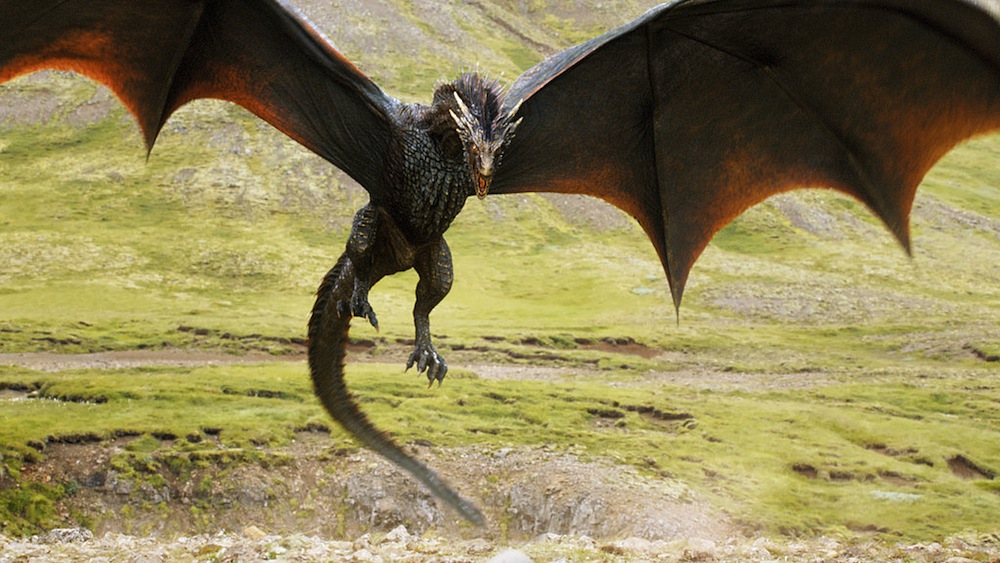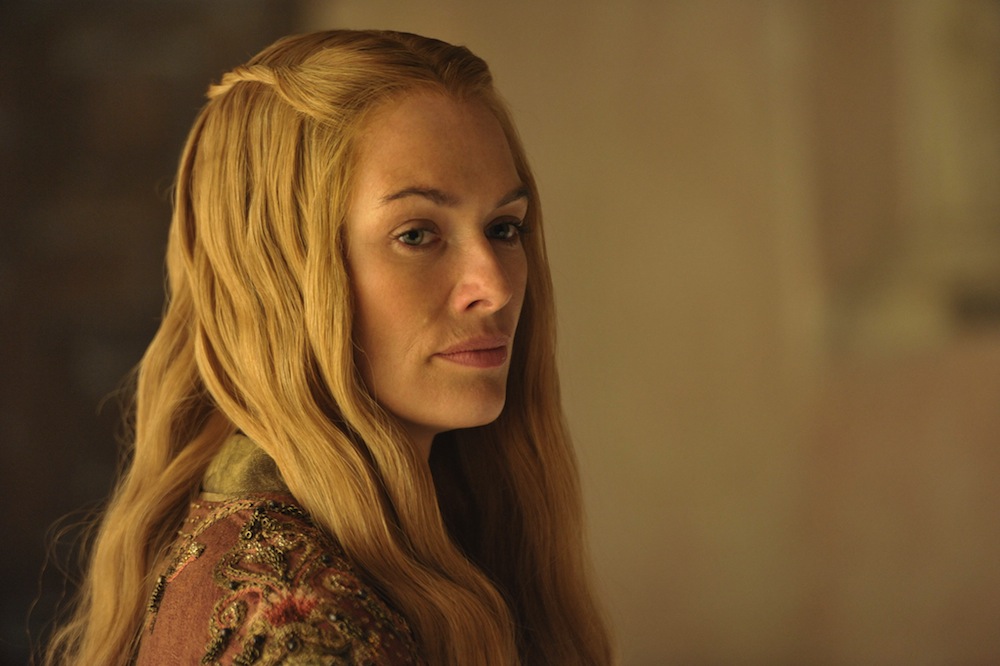Murder, Monsters & Dragons: Why 'Game of Thrones' Rules

Honorable men lose their heads. Babies are murdered. And at one point, a sorceress gives birth to a murderous shadow demon.
Why the heck is "Game of Thrones" so popular?
The much-beloved fantasy series returns to the small screen April 6 for its fourth season. Based on a series of books by George R. R. Martin, "Game of Thrones" follows a massive cast of characters vying for the throne of the vaguely medieval world of Westeros. There are dragons, horrifying "white walkers" and the occasional uterus demon, but "Game of Thrones" is more grittily realistic than most fantasy offerings. And that could be exactly why the show has such mainstream appeal.
"We like the simplicity of a fake past, but we also need it to be more complicated because our lives are so complicated," said Charles Cox, a professor of literature at American University in Washington, D.C. [Sci-Fi or Fantasy? 20 Imaginary Worlds]
Fantasy's appeal

"Game of Thrones" falls in the category of high fantasy, which is usually set in a fantastical pseudo-medieval or pseudo-Renaissance world, with a large-scale and epic plot. These worlds are appealing, Cox said, because they are void of the technological annoyances of modern life.
The Middle Ages and Renaissance represent "the most recent preindustrial time," Cox said. "It's a time before mechanization, industrialization and all this technology. … It's kind of hard for people to be heroic when they're surrounded by machines that can do everything."
Sign up for the Live Science daily newsletter now
Get the world’s most fascinating discoveries delivered straight to your inbox.
In other words, charging into battle on a horse is cooler than riding in an armored personnel carrier. And there's something comforting about a world in which good triumphs and evil doesn't come in shades of gray, Cox said.
"You never hear an orc in 'Lord of the Rings' say, 'Gee whiz, why am I fighting for this guy? Maybe I should go home and plant flowers,'" Cox said of villains of those tales. "You never have any doubt that not only is Frodo Baggins the hero, no matter what, he is going to win."
Subverting fantasy expectations
But that's where "Game of Thrones" tips the fantasy tropes on their head. In the cutthroat world of Westeros, nobody is purely good. Even honorable Ned Stark, who (spoiler alert) doesn't survive long, has cheated on his wife and has an illegitimate son.
Martin's "characters are more than one-dimensional," said Michal Hughes, a lecturer in English at Indiana University-Purdue University in Indianapolis. "They're complicated. They're definitely flawed."
As a result, Westeros seems more real-world than fantasy — dragons and ice zombies aside. In that sense, "Game of Thrones" fits right into a smorgasbord of dark, somewhat cynical programming.
"You've got 'House of Cards,' 'Scandal,' that I can think of right offhand, where it's just dirty dealing," Hughes told Live Science. Cox added "Breaking Bad" and "Mad Men" to the anti-hero-heavy list.
So what's so fun about watching terrible people outmaneuver each other? Part of it is the thrill of not knowing what's going to happen next, Hughes said. Anyone could die, and not always for terribly meaningful reasons.
"I think it's kind of appealing to people, because that's the way the world really works," Cox said, adding, "There's something weirdly compelling about rooting for somebody in spite of what they do, rather than rooting for them because of what they do."
The gore and violence that "Game of Thrones" is famous for add to this patina of realness.
"If you're going to insist the viewer care and have real stakes in what is happening, there has to be that visceral horror to it," Cox said.
In that sense, Martin is carrying a scepter passed on by fantasy authors like Jack Vance and H.P. Lovecraft, who weren't afraid to hurt their characters, Hughes said.
"The best-case scenario with Lovecraft is, if you don't end up eaten by the monster, you're going crazy," Hughes said. "There's no happy ending with him."
Of course, no meditation on "Game of Thrones" would be complete without at least a glance at HBO's generous sex-and-nudity allowances.
"That's just part and parcel of being edgy on TV these days," Cox said.
Follow Stephanie Pappas on Twitter and Google+. Follow us @livescience, Facebook & Google+. Original article on Live Science.

Stephanie Pappas is a contributing writer for Live Science, covering topics ranging from geoscience to archaeology to the human brain and behavior. She was previously a senior writer for Live Science but is now a freelancer based in Denver, Colorado, and regularly contributes to Scientific American and The Monitor, the monthly magazine of the American Psychological Association. Stephanie received a bachelor's degree in psychology from the University of South Carolina and a graduate certificate in science communication from the University of California, Santa Cruz.









